This article was co-authored by Padam Bhatia, MD. Dr. Padam Bhatia is a board certified Psychiatrist who runs Elevate Psychiatry, based in Miami, Florida. He specializes in treating patients with a combination of traditional medicine and evidence-based holistic therapies. He also specializes in electroconvulsive therapy (ECT), Transcranial Magnetic Stimulation (TMS), compassionate use, and complementary and alternative medicine (CAM). Dr. Bhatia is a diplomat of the American Board of Psychiatry and Neurology and a Fellow of the American Psychiatric Association (FAPA). He received an MD from Sidney Kimmel Medical College and has served as the chief resident in adult psychiatry at Zucker Hillside Hospital in New York.
There are 8 references cited in this article, which can be found at the bottom of the page.
wikiHow marks an article as reader-approved once it receives enough positive feedback. In this case, 100% of readers who voted found the article helpful, earning it our reader-approved status.
This article has been viewed 61,643 times.
Being scared of being sick is a difficult fear to face. You may have a panic attack due to a fear of becoming sick, or having a serious illness. In the moment, you can take measures to calm yourself down. Try to rationalize what you're feeling and avoid spiraling thoughts. In the long term, look for solutions. Talk to a doctor and therapist about medication and coping mechanisms. Evaluate your symptoms and see if there's an underlying health issue fueling your panic attacks.
Steps
Coping in the Moment
-
1See your fears as a symptom of a panic attack. If you're having a panic attack, the fears you have can overwhelm you. If you're thinking things like, "I'm going to throw up" or "I'm going to have a heart attack," these thoughts can really derail you. Instead of seeing these thoughts as rational, recognize them for what they are. Think of them as symptoms of a panic attack, and not a representation of actual reality.[1]
- Take control of your thoughts as they come through. For example, you may think to yourself, "I am going to get sick. I'm am going to pass out. I am going to throw up." When these thoughts come, think to yourself, "I am having a panic attack. I am afraid of getting sick because of my panic attack."
- By viewing negative thoughts as a symptom of a panic attack, you will be better equipped to reject them. You will not believe what you think, because you'll recognize the thoughts as one of many symptoms of a panic attack.
-
2Ground yourself. When your thoughts are spiraling out of control, seek means to remind yourself of the present moment. You do not want to get swept up in thoughts of sickness. Look for means to draw yourself back to the present.[2]
- During a panic attack, you may feel like nothing is real. You may feel hazy or dreamlike.
- Look for something tangible to reach towards. Run your fingers through your hair. Grab ahold of a physical object, like a purse or bag. Place your hands on the wall.
Advertisement -
3Challenge your irrational thoughts. When you begin to worry about becoming sick, actively challenge these thoughts. Do not let the fear of sickness take over. Stop and question the thoughts as they come.[3]
- Write your thoughts down on a piece of paper. This can help you get your thoughts out of your mind to view them objectively. Write down anything you're afraid of regarding sickness. For example, "I think I'm going to have a heart attack. I think I'm going to throw up."
- Then, read the list back to yourself. How rational are these thoughts? In all likelihood, panic-inducing thoughts are not based in reality. Seeing your fears written down on paper can help you recognize their irrational nature.
-
4Use positive self-talk. Self-soothing techniques can really help derail a panic attack. When you find your thoughts spiraling out of control, stop and assess things rationally. Give yourself positive affirmations to stave off feelings of anxiety.[4]
- Do not become self critical. Many people feel ashamed of panic attacks, and beat themselves up as a result. Try to avoid this tendency.
- Instead, repeat positive things to yourself. For example, "You're having a panic attack, but you're going to be okay. You're not really going to get sick. It's just a panic attack." Try to show yourself basic kindness when experiencing panic.
-
5Distract yourself with cold sensations. Something cold pressed against your skin can steer your attention away from thoughts of sickness. If you have ice cubes nearby, hold one in your hand as long as you comfortably can. Transfer the ice cube to your other hand. Repeat as needed until you begin to calm down.[5]
- If you don't have ice cubes, anything cold can help. Try running your hands under cool water or placing a cold beverage against your wrist.
-
6Use deep breathing. Slow, steady breaths can help ground you during a panic attack. They can also slow symptoms like rapid heartbeat, which you may mistake for signs of an illness. When your thoughts start to spiral regarding potential sickness, take a few deep breaths.[6]
- Place one hand on your chest and the other on your abdomen. Breathe in a way that directs airflow into your abdomen. The hand on your abdomen should rise, while the hand on your chest stays relatively still.
- Hold the breath for a count of 7 and exhale for a count of 8. Then, repeat about 5 times until you begin to feel calm.
- Try to breathe from your belly and gain control of your diaphragm. This will stimulate your parasympathetic nervous system and calm and relax your body.
-
7Stimulate your mind. It's a good idea to do something to stimulate your mind if you can't stop thinking about sickness. Force your mind to focus on something else in order to alleviate symptoms of a panic attack.[7]
- Do any activity you can. Go for a walk. Take a shower. Brush your teeth. Any small activity can help shift your thoughts elsewhere.
- Exercise can help lift your mood. You can try going for a run or doing a few jumping jacks in your living room.
Seeking Long-Term Solutions
-
1Try cognitive behavioral therapy. Cognitive behavioral therapy (CBT) is one of the most effective forms of treatments for panic attacks and panic disorders. CBT focuses on shifting the way you think to make you approach irrational thoughts in a more effective manner.[8]
- During CBT, therapists will encourage you to challenge the irrational thoughts you experience each day. A therapist may, for example, ask you to stop and think when you begin to feel the fear of sickness. He or she may want you to ask yourself something like, "What's the worst that can happen if I did throw up? How likely is it, really, that I'm going to throw up right now?"
- You will begin to realize your thoughts are not rational during CBT. You will eventually begin to see your fears more realistically and be able to more effectively cope with irrational thoughts.
-
2Ask a doctor or psychiatrist about medications. Sometimes, medications can be used effectively to treat panic disorders. If you have recurring panic attacks due to the fear of sickness, ask your regular practitioner about medication. You can also ask your psychiatrist if you're currently seeing one.[9]
- Antidepressants can be used to treat panic attacks, especially if the panic attacks are caused by an underlying mental health disorder typically treated with antidepressants. While they can be effective, they typically take a few weeks to take effect. If you're suffering from debilitating panic attacks now, you may need something that's faster acting.[10]
- The medications that are typically the most effective are Selective Serotonin Reuptake Inhibitors (SSRIs) and Serotonin–Norepinephrine Reuptake Inhibitors (SNRIs).
- If SSRIs and SNRIs aren't a good fit for you or aren't effective, benzodiazepines may be beneficial. Benzodiazepines are a psychiatric drug that work very quickly to alleviate symptoms of anxiety. Typically, benzodiazepines work within a 30 minute period. While they can quickly relieve symptoms during a panic attack, they can be addictive. Be careful about taking benzodiazepines if you have a history of substance abuse.
- Short acting benzodiazepines like klonopin and lorazepam are more likely to be helpful, while less like to be addictive. Talk to your doctor about your concerns of panic and anxiety for help choosing a medication that will work best for you.
- Discuss any new medications extensively with your doctor or psychiatrist. Different medications come with different risks and side effects, and what will work for you heavily depends on your personal medical history and current symptoms.
-
3Learn about the nature of panic. Sometimes, simply knowing more about panic can help you cope. Understanding how and why a panic attack occurs can help you see where your thoughts are irrational. You can read up on panic attacks and panic disorders online or elsewhere.[11]
- If you are diagnosed with a panic disorder, ask your psychiatrist or therapist to direct you to proper reading material. He or she may be able to provide pamphlets, show you websites, or recommend books on panic attacks and panic disorder.
- You can also ask about support groups. You can find a support group in person, or online. A support group can help you learn coping mechanisms from others.
-
4Avoid certain substances. Tobacco and caffeine all tend to make anxiety worse. Caffeinated beverages, coffee, and products containing tobacco should be avoided. You should also check any medications you're currently taking. Some medications contain stimulants. You can ask your doctor about switching medications or changing the dosage if you believe a medication is causing panic attacks.[12]
-
5Engage in relaxing activities. Yoga, meditation, and progressive muscle relaxation can keep you grounded in the present. This will teach you to avoid letting the fear of getting sick spiral out of control.[13]
- You can look for affordable yoga and meditation classes in your area. If classes are out of your budget, try looking for guided routines online.
- You can find guided progressive muscle relaxation techniques online. If you're seeing a therapist, he or she may be able to help you with progressive muscle relaxation.
Addressing Underlying Issues
-
1See a doctor to rule out medical issues. Sometimes, panic attacks are caused by an underlying medical issue. If you frequently fear sickness, your anxiety may be caused by something physical. See your regular doctor for a full exam and explain to him or her you are having panic attacks.[14]
- Low blood sugar, hypothyroidism, and certain cardiac problems can trigger panic attacks. Your doctor can help determine which tests are needed based on your medical history and any symptoms you're experiencing.[15]
- If you recently stopped taking any medication, medication withdrawal can cause panic attacks.
- Medical conditions associated with the likelihood of panic attack include asthma, coronary artery disease, hypertension, ulcers, cystitis, and migraines.
-
2Evaluate whether you have the symptoms of panic disorder. Panic disorder can be a cause of frequent panic attacks. If you're having panic attacks that are unrelated to physical symptoms, see if you have any symptoms of panic disorder. If you suspect you have panic disorder, see a psychiatrist for evaluation.[16]
- If you have panic attacks on a regular basis, which are unrelated to any external situation, this is a sign of panic disorder.
- You may also find yourself stressing out about experiencing a panic attack. It may get to the point that you're nervous about leaving your home.
- You may notice your behavior changes. You may, for example, avoid areas where you previously experienced a panic attack.
-
3Consider the possibility of hypochondria. An acute fear of sickness could be related to a psychiatric disorder known as hypochondria. This is an anxiety disorder centered around a fear of illness and medical problems. Consider whether you may be suffering from hypochondria.[17]
- You may obsess over having a serious disease. You may find yourself interpreting small physical changes as a serious illness.
- You may frequently seek out medical testing. You may distrust a doctor's reassurance of your health, and find yourself going to the ER or a doctor's office frequently. Conversely, you may avoid medical care out of fear of being diagnosed with a serious ailment.
- If you have hypochondria, you may search the internet to diagnose yourself and quickly become convinced you're seriously ill. You may also check your body a lot for any signs of illness or changes.
- Talk to a psychiatrist if you think you may have hypochondria. A psychiatrist can diagnose you, offer you proper medication, and may refer you to a therapist.
- Another important treatment for hypochondriasis is to develop a good physician-patient relationship and have regular doctor's appointments and check-ups.
-
4Seek evaluation from a psychiatrist. Only a qualified doctor or psychiatrist can diagnosis you with panic disorder, hypochondria, or another mental health issue. You should make an appointment with a doctor or psychiatrist if you think you have hypochondria.[18]
- If you have not already had a physical exam, an exam and some blood work may be necessary.
- You may also talk out the symptoms you're experiencing. The doctor or therapist will ask you many questions to best determine your diagnosis.
- You also may have to fill out a self-assessment questionnaire.
Expert Q&A
-
QuestionHow do psychiatrists typically treat panic attacks and phobias?
 Padam Bhatia, MDDr. Padam Bhatia is a board certified Psychiatrist who runs Elevate Psychiatry, based in Miami, Florida. He specializes in treating patients with a combination of traditional medicine and evidence-based holistic therapies. He also specializes in electroconvulsive therapy (ECT), Transcranial Magnetic Stimulation (TMS), compassionate use, and complementary and alternative medicine (CAM). Dr. Bhatia is a diplomat of the American Board of Psychiatry and Neurology and a Fellow of the American Psychiatric Association (FAPA). He received an MD from Sidney Kimmel Medical College and has served as the chief resident in adult psychiatry at Zucker Hillside Hospital in New York.
Padam Bhatia, MDDr. Padam Bhatia is a board certified Psychiatrist who runs Elevate Psychiatry, based in Miami, Florida. He specializes in treating patients with a combination of traditional medicine and evidence-based holistic therapies. He also specializes in electroconvulsive therapy (ECT), Transcranial Magnetic Stimulation (TMS), compassionate use, and complementary and alternative medicine (CAM). Dr. Bhatia is a diplomat of the American Board of Psychiatry and Neurology and a Fellow of the American Psychiatric Association (FAPA). He received an MD from Sidney Kimmel Medical College and has served as the chief resident in adult psychiatry at Zucker Hillside Hospital in New York.
Board Certified Psychiatrist You typically start with talk therapy and then see if the issue can be improved without medication. If the phobia is really debilitating, a psychiatrist may prescribe a medication for it. But even then, medication is typically managed and paired with some form of therapy. There are other treatments out there, but this is the most common approach.
You typically start with talk therapy and then see if the issue can be improved without medication. If the phobia is really debilitating, a psychiatrist may prescribe a medication for it. But even then, medication is typically managed and paired with some form of therapy. There are other treatments out there, but this is the most common approach.
References
- ↑ https://www.nimh.nih.gov/health/publications/panic-disorder-when-fear-overwhelms
- ↑ http://psychcentral.com/lib/how-to-halt-and-minimize-panic-attacks/
- ↑ https://www.betterhealth.vic.gov.au/health/conditionsandtreatments/panic-attack
- ↑ https://www.betterhealth.vic.gov.au/health/conditionsandtreatments/panic-attack
- ↑ http://psychcentral.com/lib/how-to-halt-and-minimize-panic-attacks/
- ↑ https://www.betterhealth.vic.gov.au/health/conditionsandtreatments/panic-attack
- ↑ http://psychcentral.com/lib/how-to-halt-and-minimize-panic-attacks/
- ↑ Padam Bhatia, MD. Board Certified Psychiatrist. Expert Interview. 3 April 2020.
- ↑ Padam Bhatia, MD. Board Certified Psychiatrist. Expert Interview. 3 April 2020.
- ↑ https://my.clevelandclinic.org/health/diseases/4451-panic-disorder#management-and-treatment
- ↑ https://www.nimh.nih.gov/health/publications/panic-disorder-when-fear-overwhelms
- ↑ https://my.clevelandclinic.org/health/diseases/4451-panic-disorder#management-and-treatment
- ↑ https://my.clevelandclinic.org/health/diseases/4451-panic-disorder#management-and-treatment
- ↑ https://www.nimh.nih.gov/health/publications/panic-disorder-when-fear-overwhelms
- ↑ http://www.helpguide.org/articles/anxiety/panic-attacks-and-panic-disorders.htm
- ↑ http://www.helpguide.org/articles/anxiety/panic-attacks-and-panic-disorders.htm
- ↑ Berrios GE (2001) Hypochondriasis. History of the Concept. In Starcevic V & Lipsitt DR (eds). Hypochondriasis. Oxford, Oxford University Press, pp3-20
- ↑ https://www.verywellmind.com/diagnosing-panic-disorder-2583930
About This Article
If you’re overwhelmed by fears of becoming sick, recognize that your thoughts and feelings are panic symptoms. For example, tell yourself that your fear of fainting is because of the panic attack. To get control of your feelings, ground yourself by tuning into your physical senses. You can do this by touching an object in your environment, like a set of keys or even an ice cube, and focusing on how it feels. Once you feel more grounded, challenge your negative thoughts and replace them with more realistic ones. You can also calm yourself by breathing deeply or working on a task. Read on for more tips from our Medical co-author, including how to find long-term solutions for panic attacks!
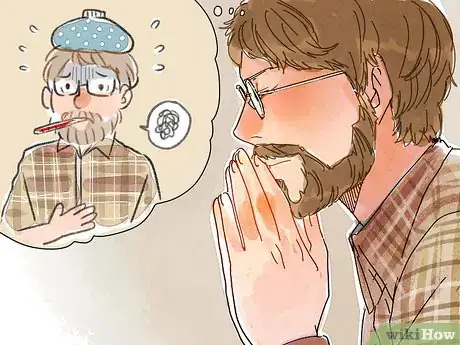
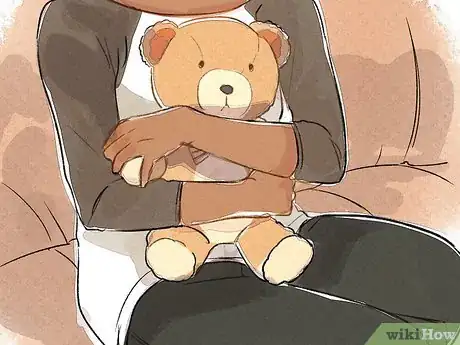
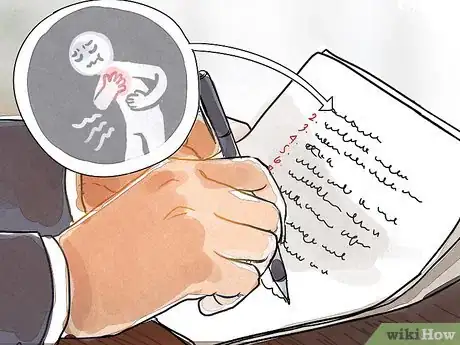
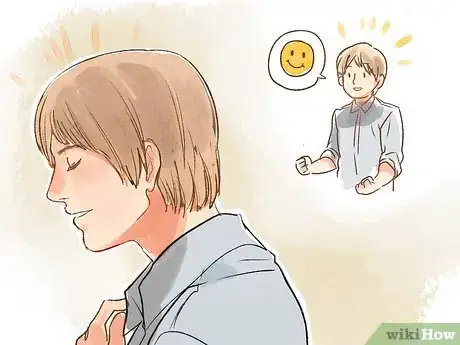
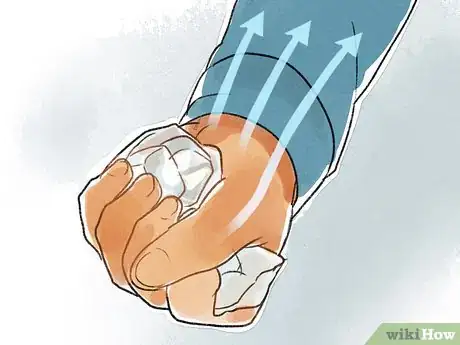
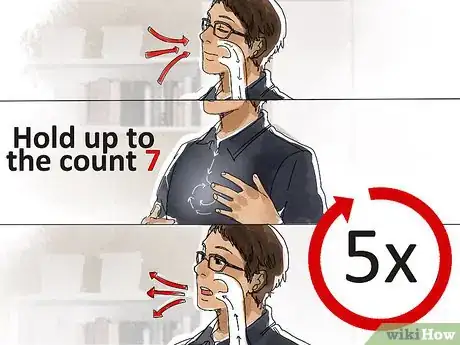

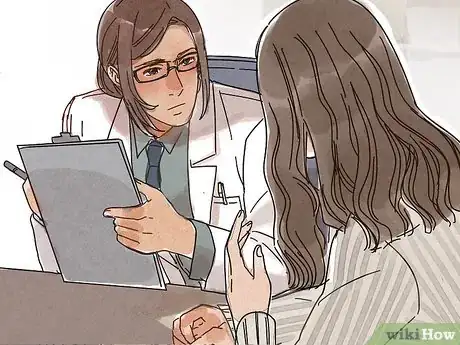


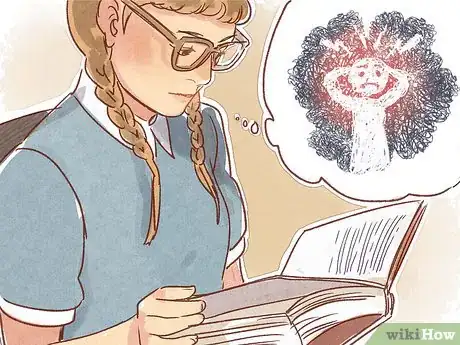


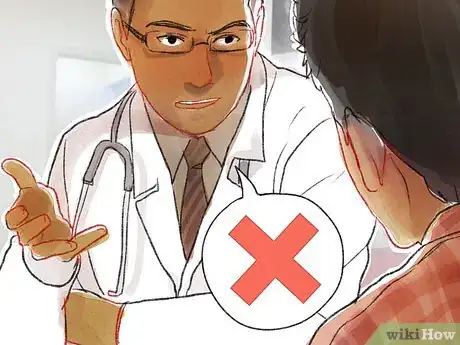
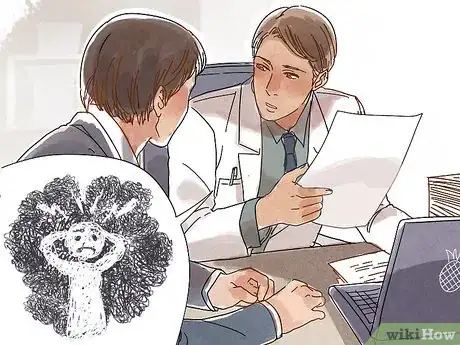
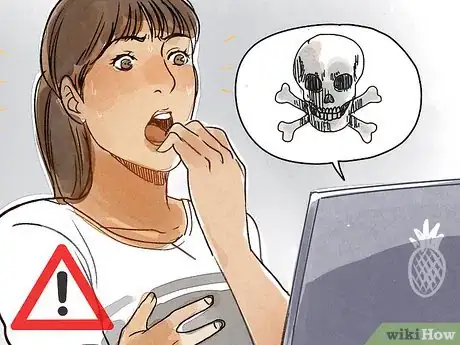
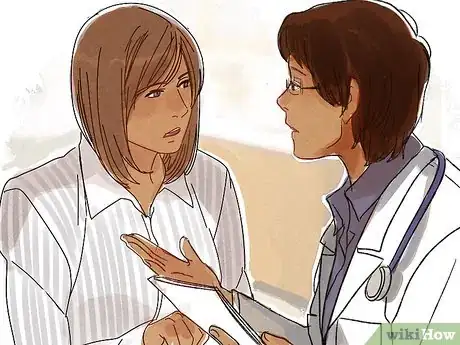




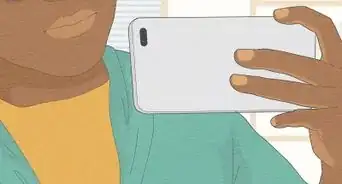




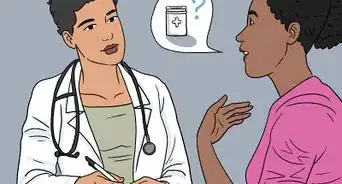
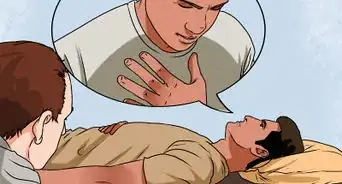


















































Medical Disclaimer
The content of this article is not intended to be a substitute for professional medical advice, examination, diagnosis, or treatment. You should always contact your doctor or other qualified healthcare professional before starting, changing, or stopping any kind of health treatment.
Read More...